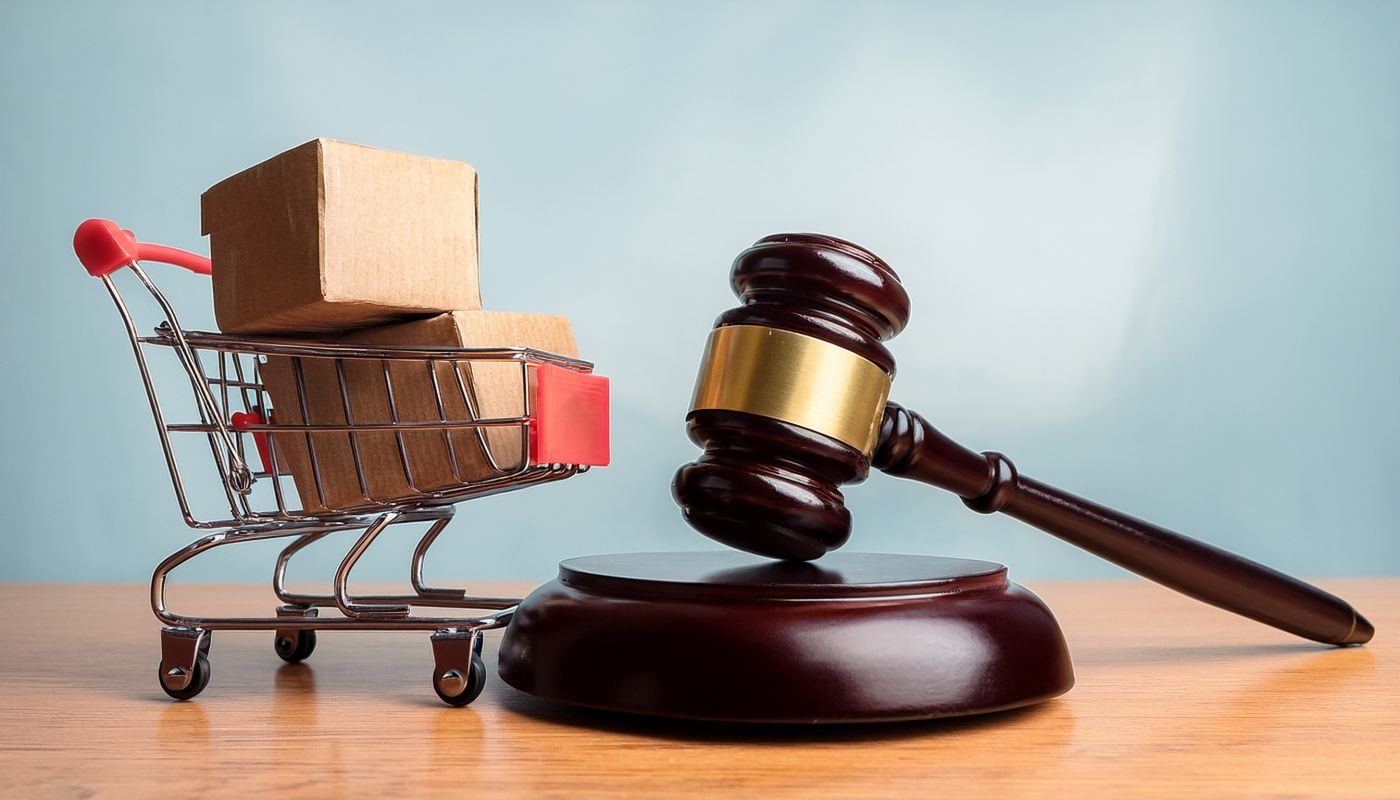
Investing in the stock market or other securities always carries a degree of risk, but what happens when losses occur not due to market forces but because of broker misconduct or negligence?
In such cases, investors may have the right to recover their losses through FINRA arbitration, a legal forum overseen by the Financial Industry Regulatory Authority (FINRA). Unlike traditional courtroom litigation, FINRA arbitration is designed to resolve disputes between investors and brokerage firms or individual brokers in a faster and more streamlined manner.
If you're considering pursuing a FINRA arbitration claim, it's critical to be well-prepared. The process can be challenging and involves detailed documentation, strict deadlines, and strategic decision-making.
At Scott Hirsch Law Group, based in Coconut Creek, Florida, we’re dedicated to helping investors nationwide recover losses caused by broker misconduct, investment fraud, and other securities violations. Whether you're local to South Florida or located across the country, we’re here to stand up for your rights and help you pursue financial recovery. Here, we’ll walk you through the essential strategies investors should adopt to effectively prepare for FINRA arbitration.
An Intro to the Basics of FINRA Arbitration
Before looking into preparation strategies, it's important to understand what FINRA arbitration entails. Arbitration is a legal process where disputes are resolved outside of court by a neutral third party (or a panel) that renders a binding decision. In the context of securities law, FINRA arbitration typically involves disputes over:
Misrepresentation or omission of material facts
Unauthorized trading
Breach of fiduciary duty
Churning (excessive trading to generate commissions)
Unsuitable investment recommendations
Failure to supervise
If you opened a brokerage account and signed a client agreement, chances are you agreed to resolve disputes through arbitration rather than litigation. This binding commitment makes it crucial to fully understand your rights, the process, and the strategies that can help you work through it successfully.
Hire a Qualified Securities Attorney Early
Perhaps the most important step in preparing for FINRA arbitration is hiring a seasoned securities attorney. These legal professionals are experienced in securities law and have deep experience handling arbitration cases involving broker-dealer misconduct, investment fraud, and regulatory violations.
An experienced securities attorney can evaluate the strength of your claim, gather the necessary evidence, and represent you throughout the entire arbitration process.
Here are some reasons why engaging legal counsel early in the process is critical:
Experience in securities law: An experienced securities attorney understands the nuances of FINRA rules and procedures.
Proper case evaluation: Your attorney can determine whether your case meets the criteria for a strong arbitration claim.
Documentation and evidence gathering: They can help you obtain account statements, correspondence, trade confirmations, and other essential documents.
Procedural guidance: Arbitration has strict deadlines and filing requirements that your attorney will manage efficiently.
Advocacy: In arbitration hearings, having a legal advocate present your case can significantly increase your chances of recovery.
Whether you’re based in Florida or any other part of the U.S., many securities attorneys handle arbitration cases nationwide and can assist clients remotely or travel as needed.
Gather and Organize Your Documentation
Thorough documentation is the backbone of a successful FINRA arbitration case. Arbitrators rely heavily on written evidence to assess claims, determine credibility, and calculate potential damages. Start organizing your documents as early as possible, ideally with your securities attorney’s guidance.
Key documents to collect include:
Monthly account statements
Trade confirmations
Correspondence with your broker or firm (emails, letters, notes)
Marketing materials or pitch decks received from the broker
Notes from any phone calls or in-person meetings
Copies of the new account form and investment objectives
Internal firm documents (if available through discovery)
Keep these documents in chronological order and create digital backups. Your attorney will use this information to create a timeline of events, identify patterns of misconduct, and support your claims with concrete evidence.
Develop a Clear and Compelling Narrative
Arbitrators are more than just legal professionals—they’re also human. While your case must be supported by facts and law, it must also tell a story that is coherent, credible, and compelling. This is where a well-crafted narrative can make a significant impact.
Work with your securities attorney to create a detailed narrative that explains:
What your investment goals were
What your broker told you (or failed to disclose)
What transactions were made, and why they were problematic
How those transactions deviated from your risk tolerance or financial profile
The financial and emotional impact of the misconduct
A strong narrative helps arbitrators understand not just what happened, but why it was wrong, and why you might be entitled to compensation.
Familiarize Yourself with the FINRA Arbitration Process
Knowing what to expect from the FINRA arbitration process will help reduce anxiety and increase your confidence as your case progresses. The process generally includes the following stages:
1. Filing the Statement of Claim
Your attorney will draft and file a Statement of Claim, which outlines the nature of your dispute, supporting facts, and requested damages. This document is similar to a complaint in a civil lawsuit and must comply with FINRA’s formatting and content rules.
2. Response from the Brokerage Firm
The respondent (broker or firm) has 45 days to file an answer, which may include defenses, counterclaims, or even a motion to dismiss.
3. Arbitrator Selection
FINRA uses the Neutral List Selection System (NLSS) to provide a list of potential arbitrators. Parties rank and strike names to agree on a panel. Your securities attorney will play a vital role in helping select a favorable panel.
4. Discovery Phase
This phase allows both parties to exchange relevant documents and information. While less formal than civil litigation, discovery in arbitration can still be contentious. Your attorney will push for disclosure of internal documents, emails, and firm policies that could support your case.
5. Pre-Hearing Conferences
These are administrative hearings where procedural issues are addressed. A scheduling order is created that lays out key deadlines and the arbitration hearing date.
6. Final Hearing
This is the equivalent of a trial in court. Witnesses are called, evidence is presented, and both sides make legal arguments. The panel then renders a decision, usually within 30 days.
Key Strategies for Success in FINRA Arbitration
To increase your chances of a successful outcome, implement the following strategies with your securities attorney:
Be Proactive and Prompt
Delays can be fatal in arbitration. The statute of limitations for filing a FINRA claim is six years from the event giving rise to the dispute. Waiting too long may prevent you from recovering anything.
Keep Emotional Distance
Although your losses may be personal and painful, decisions in arbitration hinge on evidence and legal arguments, not emotion. Let your securities attorney act as the voice of reason and advocate on your behalf.
Prepare for Settlement Discussions
Many arbitration cases settle before the final hearing. Your attorney will help you assess the value of any settlement offer and negotiate from a position of strength.
Avoid Common Pitfalls
To strengthen your chances of success in FINRA arbitration, it’s important to be mindful of common mistakes that can undermine your case. Keep the following precautions in mind as you move through the process:
Don’t attempt to represent yourself unless you have deep legal experience.
Avoid sharing details of your case on social media.
Never destroy or alter documents.
These missteps can seriously damage your credibility and jeopardize your case. Always consult with your securities attorney before taking any action that could affect your arbitration claim.
Stay Engaged in the Process
While your attorney will handle the legal heavy lifting, your active participation—providing documents, answering questions, preparing for testimony—is crucial to the case’s success.
Speak With an Experienced Securities Attorney
If you're facing investment losses due to broker misconduct, don't tackle the FINRA arbitration process alone. At Scott Hirsch Law Group, we serve clients from Coconut Creek, Florida, and nationwide, providing experienced, personalized legal guidance to help you seek recovery. Contact us today to schedule a free consultation and learn how we can advocate for your financial future.



